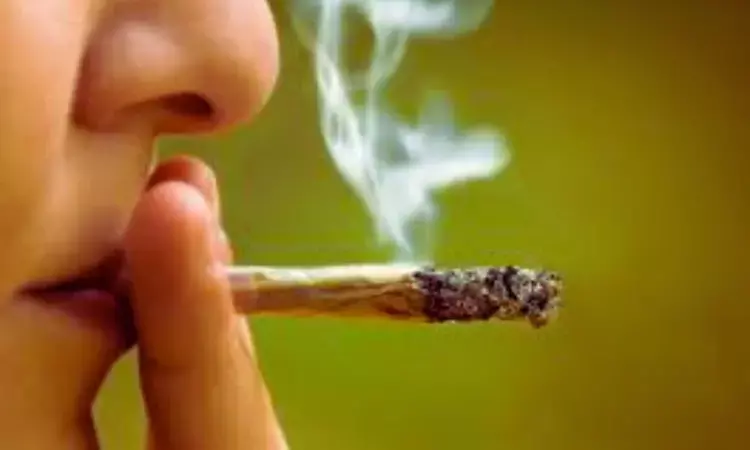- Home
- Medical news & Guidelines
- Anesthesiology
- Cardiology and CTVS
- Critical Care
- Dentistry
- Dermatology
- Diabetes and Endocrinology
- ENT
- Gastroenterology
- Medicine
- Nephrology
- Neurology
- Obstretics-Gynaecology
- Oncology
- Ophthalmology
- Orthopaedics
- Pediatrics-Neonatology
- Psychiatry
- Pulmonology
- Radiology
- Surgery
- Urology
- Laboratory Medicine
- Diet
- Nursing
- Paramedical
- Physiotherapy
- Health news
- Fact Check
- Bone Health Fact Check
- Brain Health Fact Check
- Cancer Related Fact Check
- Child Care Fact Check
- Dental and oral health fact check
- Diabetes and metabolic health fact check
- Diet and Nutrition Fact Check
- Eye and ENT Care Fact Check
- Fitness fact check
- Gut health fact check
- Heart health fact check
- Kidney health fact check
- Medical education fact check
- Men's health fact check
- Respiratory fact check
- Skin and hair care fact check
- Vaccine and Immunization fact check
- Women's health fact check
- AYUSH
- State News
- Andaman and Nicobar Islands
- Andhra Pradesh
- Arunachal Pradesh
- Assam
- Bihar
- Chandigarh
- Chattisgarh
- Dadra and Nagar Haveli
- Daman and Diu
- Delhi
- Goa
- Gujarat
- Haryana
- Himachal Pradesh
- Jammu & Kashmir
- Jharkhand
- Karnataka
- Kerala
- Ladakh
- Lakshadweep
- Madhya Pradesh
- Maharashtra
- Manipur
- Meghalaya
- Mizoram
- Nagaland
- Odisha
- Puducherry
- Punjab
- Rajasthan
- Sikkim
- Tamil Nadu
- Telangana
- Tripura
- Uttar Pradesh
- Uttrakhand
- West Bengal
- Medical Education
- Industry
Reducing In-Home Cannabis Smoking Could Significantly Cut Children's Exposure to Toxic Secondhand Smoke: JAMA

USA: A recent cross-sectional study published in JAMA Network Open highlights the increased risk of children being exposed to secondhand cannabis smoke (SHCS) when cannabis is smoked inside the home. The study found a strong link between in-home cannabis smoking and a significantly higher likelihood of children being exposed to cannabis smoke, as indicated by urinary cannabinoid biomarkers.
"Given that young children spend a large portion of their time indoors, minimizing in-home cannabis smoking could significantly reduce their exposure to the harmful and carcinogenic chemicals present in cannabis smoke," the researchers wrote.
The research underlines that children, particularly young ones, spend a considerable amount of their time indoors, making them especially vulnerable to the toxic and carcinogenic chemicals present in secondhand cannabis smoke. As cannabis use becomes more widely accepted and legal in several regions, the health risks associated with exposure to secondhand smoke are raising increasing concerns among public health experts. Considering this, Osika Tripathi, San Diego State University, School of Public Health, San Diego, California, and colleagues aimed to examine the relationship between in-home cannabis smoking and the presence of urinary cannabinoids in children living in the household.
For this purpose, the researchers used baseline data from Project Fresh Air, a 2012-2016 clinical trial conducted in San Diego County, California, which included households with children under 14 years and at least one adult tobacco smoker. Children’s urine samples were analyzed in 2022 for cannabis biomarkers, including Δ9-tetrahydrocannabinol (THC) and its metabolites. In-home cannabis smoking was assessed through parent reports, air particle counts, and daily cannabis smoking events. The study found a significant association between in-home cannabis smoking and the detection of cannabis biomarkers in children’s urine, with greater exposure linked to higher urinary THC equivalents.
Key Findings:
- 275 children were included in the analysis, with a mean age of 3.6 years. The cohort consisted of 144 males (52.4%), 38 Black children (13.8%), 132 Hispanic children (48.0%), and 52 White children (18.9%).
- Twenty-nine households (10.6%) reported in-home cannabis smoking in the past 7 days.
- Seventy-five children (27.3%) had detectable urinary cannabinoids.
- The odds of detectable TTE in children’s urine were significantly higher in households with in-home cannabis smoking compared to those without (OR, 5.0).
- For each additional daily cannabis smoking event, the odds of detectable TTE increased (OR, 2.5).
- Although TTE levels were higher among children exposed to more daily cannabis smoking events, the increase per event (35.68%) was not statistically significant.
The study indicates a clear link between in-home cannabis smoking and children's exposure to secondhand cannabis smoke.
"Strategies aimed at reducing in-home cannabis smoking, particularly in households with children, should be explored. It is also crucial to investigate how changes in cannabis regulations affect in-home smoking patterns and potentially increase child SHCS exposure. Additionally, further research is needed to better understand the long-term health risks associated with SHCS exposure," the researchers concluded.
Reference:
Tripathi O, Parada H, Sosnoff C, et al. Exposure to Secondhand Cannabis Smoke Among Children. JAMA Netw Open. 2025;8(1):e2455963. doi:10.1001/jamanetworkopen.2024.55963
Dr Kamal Kant Kohli-MBBS, DTCD- a chest specialist with more than 30 years of practice and a flair for writing clinical articles, Dr Kamal Kant Kohli joined Medical Dialogues as a Chief Editor of Medical News. Besides writing articles, as an editor, he proofreads and verifies all the medical content published on Medical Dialogues including those coming from journals, studies,medical conferences,guidelines etc. Email: drkohli@medicaldialogues.in. Contact no. 011-43720751


